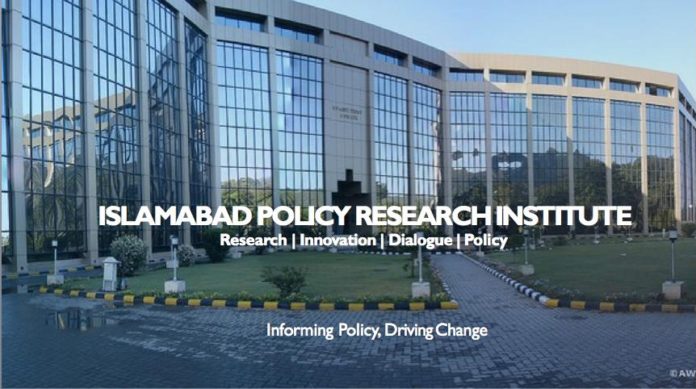ISLAMABAD: A national conference on identification and actualisation of the national narrative of Pakistan was held under the auspices of the Islamabad Policy Research Institute, a statement said.
The conference was an attempt to initiate a dialogue between various stakeholders in identifying a narrative that reflects the cultural and sociological ethos of Pakistan.
IPRI acting president Raashid Wali Janjua said that the present era is where machine learning and algorithms were driving the narratives. It was an era where new generations such as Millennial, Generation Z, and Alpha were grappling with the identity crisis.
The pearl of high price; therefore, in narrative making was the answer to questions like who we are? And where do we intend to go?
Pakistan’s National Security Adviser Dr Moeed Yusuf was the keynote speaker on the occasion.
The conference was also addressed by Senate’s Defence Committee chairman Mushahid Hussain Syed, former foreign minister Hina Rabbai Khar, Council of Islamic Ideology chairman Dr Qibla Ayaz, Senator Aitzaz Ahsan and Senator Javed Jabbar.
Moeed Yusuf said that there is a need to improve the communication strategy to project Pakistan’s story to the world without being apologetic, as “we had a very impressive story to tell”.
He rued the fact that Pakistan had been a victim of a negative narrative in the past that projected an image quite apart from the actual reality.
Senator Mushahid Hussain said that Pakistan has contributed immensely to the world in terms of culture, peace-building and sense of togetherness; and that narrative is in need of being reinvented.
There are three tectonic shifts that Pakistan was undergoing, such as confronting a Hindutva-driven India, the United States exit from Afghanistan and the social media revolution.
Hussain called for building a narrative based on ground realities, and it has to be people-driven and not state-centric.
Hina Rabbani Khar highlighted the need for calibrating the foreign policy in accordance with the national values and interests, which are based on a human security-centered paradigm.
Qibla Ayaz said that religion is the foundational basis of the narrative and “we need to celebrate the fact that divergent sects of Muslims have evolved a 22-point consensus called Isthekam-e-Pakistan charter”.
The use of religion as a cementing force based on the principles of equity and justice should be worthy of propagation through a national narrative.
Senator Aitzaz Ahsan held forth on the need for discovering the true roots of our identity based on the national narrative.
According to him: “Our national predilection for seeking extra territorial identity needs to be replaced by a celebration of indigenous culture.”
He regarded Quaid-e-Azam’s August 11, 1947 speech as the basis of the national narrative and decried the adoption of foreign cultural and linguistic symbols as part of the cultural and linguistic identity.
Ahsan reminded the audience of the falsification of history due to which the real indigenous heroes such as Raja Porus and Dulla Bhatti were forgotten and invaders celebrated.
He stressed on the need for a tolerant, inclusive and pluralist narrative that celebrated diversity and pluralism.
Senator Javed Jabbar said the identity of Pakistan has, in fact, been actualised and there is no need to worry about it.
Pakistan has survived all odds and has overcome adversities to emerge stronger, he said and reminded the audience that the nation state was a recent concept in the large historical continuum of mankind and “we were a young nation that has a long way to go”.
He identified 30 elements of identity, including positives eclipsing the negatives. “The panacea to most of our problems is high quality education that is universally available to all segments of [the] society,” he added.
